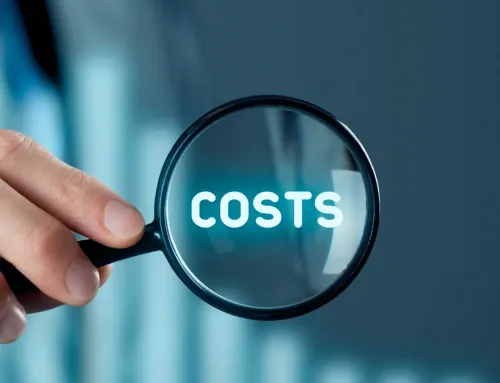You may have seen over the counter hearing aids in the news recently as the OTC Hearing Aid Act was signed in to law. The law directs the Food and Drug Administration (FDA) to regulate the sale of hearing devices that can be sold off the shelf without the assistance of a hearing professional. The FDA has three years to conduct hearings and write a new set of rules regulating the sale of these OTC hearing devices.
The objective of the legislation is to make hearing aids more accessible to Americans as more than 50 million people have some degree of hearing loss. More than 80% of those people go untreated. The bill intends to make it easier for those untreated to get hearing devices. Cost however is not the only barrier for not seeking treatment, as a majority are unaware of their loss or are not ready to accept that they have a loss.
What is an Over the Counter Hearing Aid?
OTC hearing devices are available today, they are known as Personal Sound Amplification Products or PSAPs. They can’t be called hearing aids because they only amplify all sounds. You may have seen ads on late night TV or offers for low priced “hearing devices” available online. These devices are currently not regulated nor can they be called a hearing aid. Prices are very low, ranging from $15 -$400 or more a piece. They make all sounds louder, where a true hearing aid can be programmed by a professional (like us) to meet the unique hearing loss of the patient. If you have a high frequency hearing loss (like the pitch of a woman or child’s voice) it makes no sense to make the lower frequencies louder too. PSAPs make it more difficult to hear what a person is trying to say, especially when other noise is present.
The rule making to reclassify and regulate amplifiers is up to the FDA. The process is only just beginning and we have no idea what will be considered an OTC hearing aid. Any changes in classifications and new products are years away from being available for purchase.
OTC Hearing Aids Increase Accessibility
American Hearing + Audiology is in favor of anything that will help the 34 million people in the US that live with untreated hearing loss get access to good quality devices that will help them better communicate with others. Untreated hearing loss can lead to social isolation, depression, broken relationships, lower earnings, and even cognitive decline.
Like the nearby image shows, devices are available today, just unregulated, and honestly a bit misleading. Proponents of the new OTC hearing aid law believe this will help people with mild hearing loss to get hearing help at a lower cost. We know that cost isn’t the only barrier to treatment. Most are simply unaware of their loss as they haven’t had a proper hearing evaluation.
The best hearing aid manufacturers are aware of the price barriers for some patients and have affordable options that give budget conscious consumers hearing aids that are truly programmable and have many of the noise reduction capabilities of higher end hearing aids. Learn about affordable hearing aid options here.
What you won’t get with OTC Hearing Aids
- A hearing exam from a professional.By self-treating, with an OTC device or a current PSAP, the patient won’t know the true degree of their hearing loss or if there are other issues with their hearing that require medical treatment.
- Follow-up Care.Part of the treatment process is rehabilitation. Rarely does someone put on a hearing aid and walk out the door completely adapted to the sounds being reintroduced.. Patients need counseling and adjustments over the life of the hearing aid. For most patients hearing loss is a gradual process until the point where they need treatment. Hearing these sounds again is not easy and retraining is needed. Hearing changes over time, especially as we age. Without regular hearing tests, a hearing device may not be delivering the maximum hearing benefit.
- Proper fit. A hearing aid is only as good as the professional that fits your device. Your hearing loss and ear anatomy are as unique as your fingerprint. No two ear lobes are the same and your loss is at varying frequencies. A hearing professional can ensure that the device fits properly and is programmed to deliver the maximum benefit that you need.
- Custom fit. The anatomy of the ear varies greatly. A device that fits your father probably will not fit you. We provide a wide variety of styles that can be customized to your ear lobe and canal for a more comfortable fit and higher performance.
- Programmability. Today’s hearing aids can be programmed and readjusted to meet your daily lifestyle or changes in your hearing. OTC devices are closed systems with a few basic settings. You can’t bring them to our office to reprogram the device.
Effectiveness of OTC Hearing Devices
Researchers at the University of Indiana conducted a study of patients with hearing loss. Some were given fully programmable hearing aids and service from an audiologist. Others received the same hearing aid, but without the programming and counseling of an audiologist (much like an OTC scenario). The group was monitored for a period six weeks. The study concluded that both groups benefitted from hearing aids. Interestingly, the OTC group was less satisfied and less likely to purchase the devices at the end of the 6-week trial period. The OTC group was then given an option to continue with a 4-week trial period with the assistance of a hearing professional. At the end of the optional 4- week period, the OTC patients reported a significantly higher satisfaction level. The conclusion: patients fared far better when their devices were properly programmed and received counseling from an audiologist. You can read more about the study at the AARP website.
Can PSAPs Help Your Hearing?
Consumer Reports recently tested a variety of Personal Sound Amplifiers to see if they can help people hear better. They tested four devices ranging in price from $20-$350. They concluded it was best to avoid the low-end devices altogether. Their test subjects did see some gain with the higher-end PSAPs, however had difficulty understanding conversations with noise present (like in a restaurant). Having treated thousands of people for hearing loss, patients tell us that being unable to discern conversations in noisy settings is a major tipping point for seeking treatment. While that might not be a concern for some older patients that live a quiet lifestyle, most people will be severely disappointed with the performance of these damplifiers. Consumer Reports also recommends that it is still best to have a professional hearing test first and then decide what device will give you the benefit you are want. Read the full article on PSAP’s here.
Get What You Pay For
It’s valuable advice most of us received early in life. Something that has more features and greater performance generally costs more. A Cadillac and a motorized scooter are both vehicles that can take you places. The Cadillac is considerably more expensive because it has more space, a far more powerful engine, a high-end sound system, and a spacious comfortable interior. The scooter has limitations, as it can only go so fast, you’ll get wet in the rain and have a tough time hauling golf clubs and groceries.
That’s where a hearing professional can help. First, you need to know the degree of hearing loss in order to get the right level of performance. From there your hearing specialist will recommend the device that best suits your hearing loss and the performance level you seek.
The new OTC legislation is directed at helping people with a mild hearing loss that typically go untreated. The risks of untreated hearing loss are under-estimated, but can be serious.
Why did lawmakers pass this OTC legislation?
Like many today, we’re always skeptical about the motives of legislators. Spiraling healthcare costs is a big worry for most Americans. By changing the name of something that already exists, legislators will likely campaign to say they brought down the price of hearing aids, which isn’t exactly true. Washington DC has a saying, “follow the money”It will be interesting to see which special interest groups applied “pressure”by way of campaign donations to the bill sponsors in order to reclassify devices. Yes, it seems cynical to question the motives of the sponsors and whether this this law will improve the lives of millions of Americans. However, the flow of contributions is how things get done in DC. An opinion column published in the DC insider website The Hill points out the unseemly underbelly of this legislation.
Our Conclusions
There is much uncertainty about over the counter hearing aids as it stands today. To sum up:
- People with mild hearing loss will benefit from trying good quality hearing devices
- An amplifier is not a hearing aid, and will only make all sounds louder.
- It is important to get a professional hearing evaluation (remember most insurances and Medicare Part B cover your exam if you are cost conscious)
- There are major performance limitations with an over the counter hearing aid device
- It will be many years before the FDA guidelines and rules will be written.
If you suspect you have a hearing loss now, the best thing to do today is to contact us for an evaluation. From there you can decide the best path to address your hearing difficulties. Maybe a scooter can get the job done, however if you are noticing hearing difficulties then you are probably past the point of a mild hearing loss and may need something with a little more power and adaptability to suit your daily activities.
Contact American Hearing + Audiology for an appointment at one of our top-rated hearing centers.





